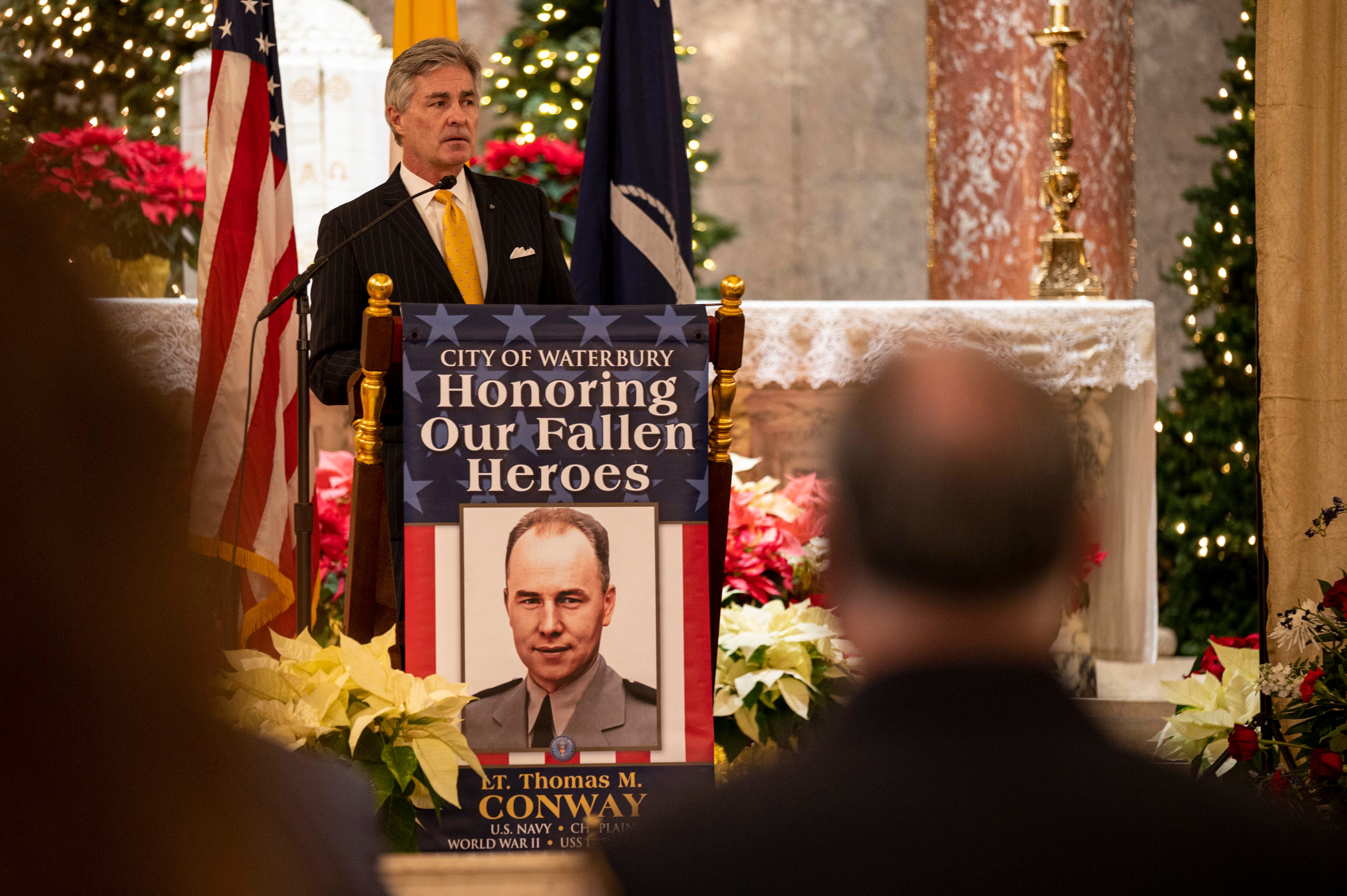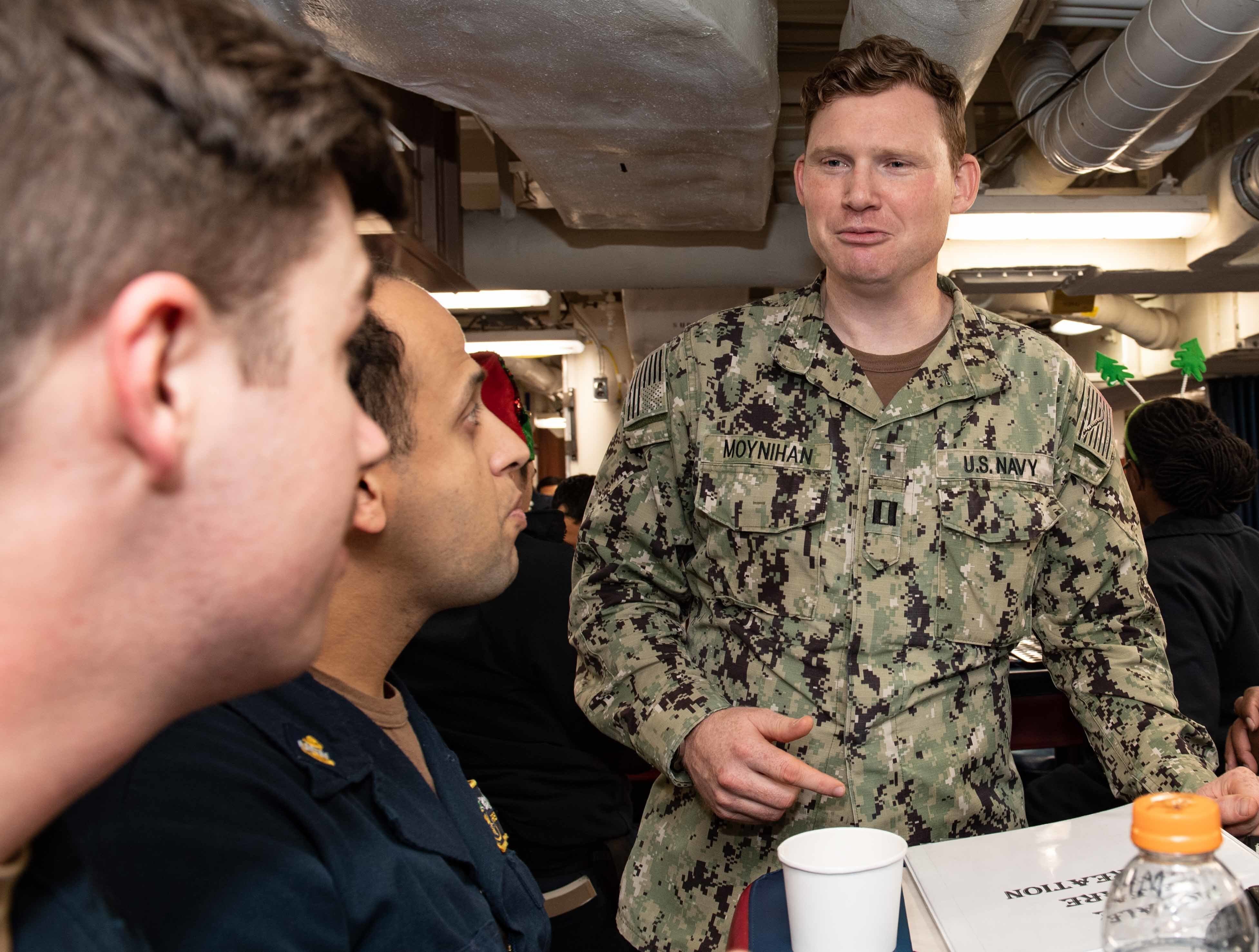In a nod to the mental health needs of guided-missile destroyer crews, the Navy is starting to make chaplains a permanent part of the warship’s force.
The effort began last month in the always-busy Japan-based U.S. 7th Fleet.
There, Destroyer Squadron 15 assigned one of the uniformed religious leaders for each of the squadron’s eight destroyers, making them a permanent part of the ship’s company.
Before that, chaplains were farmed out to destroyers during workups and deployments as visiting “ship riders,” according to Naval Surface Forces.
“The mental health of our Sailors is a top priority for the Surface Force,” command spokesman Jarred Reid-Dixon said in an email. “We identified the need to assign chaplains aboard destroyers to help build Sailor resiliency across the Fleet.”
RELATED

Chaplains have also been billeted to the destroyers Fitzgerald and Spruance in San Diego, and a plan known as the “DDG 51 Initiative” aims to embark chaplains on all destroyers by 2025, Reid-Dixon said.
Military chaplains span denominations and work to look after the spiritual and moral well-being of troops and their families, conducting religious services and providing counseling.
“We care for everybody,” Lt. Timothy Delaughter, a chaplain for the Japan-based Combined Task Force 71, said in a Navy release announcing the new initiative. “A chaplain can provide confidentiality through conversations, counseling and support.”
Chaplains are already part of the guided-missile cruiser and aircraft carrier fleet.
Responding to a request to place chaplains on destroyers, the Chaplain Corps came up with strategies to increase the command’s budget and recruit chaplains who would be specifically billeted to destroyers, said Capt. Daniel Mode, 7th Fleet’s chaplain, in the release.
“Keeping Sailors healthy and resilient is a critical leadership priority,” he said.
U.S. 7th Fleet appears to be a good place to start.
RELATED

Sailors assigned to destroyers there operate on a geopolitical razor’s edge, dealing with an ascendant China and the perennial threat from North Korea.
Government watchdog studies have in recent years found that sailors out there are overworked, and a relentless operations tempo impacts training and other needs.
The fatal collisions involving the destroyers Fitzgerald and John S. McCain were both partly attributed to overworked and undermanned crews as well.
The Navy hopes a “ministry of presence” for destroyer sailors will hopefully help them deal with the stressors of their job, realize their shared humanity and understand that they’re not alone, said Cmdr. Lynn Christensen, a CTF-71 chaplain, in the release.
“We want to help people succeed in life,” Christensen said.
Correction: an earlier version of this article misstated the rank and gender of a chaplain. Lynn Christensen is a male O-5.
Geoff is the managing editor of Military Times, but he still loves writing stories. He covered Iraq and Afghanistan extensively and was a reporter at the Chicago Tribune. He welcomes any and all kinds of tips at geoffz@militarytimes.com.
